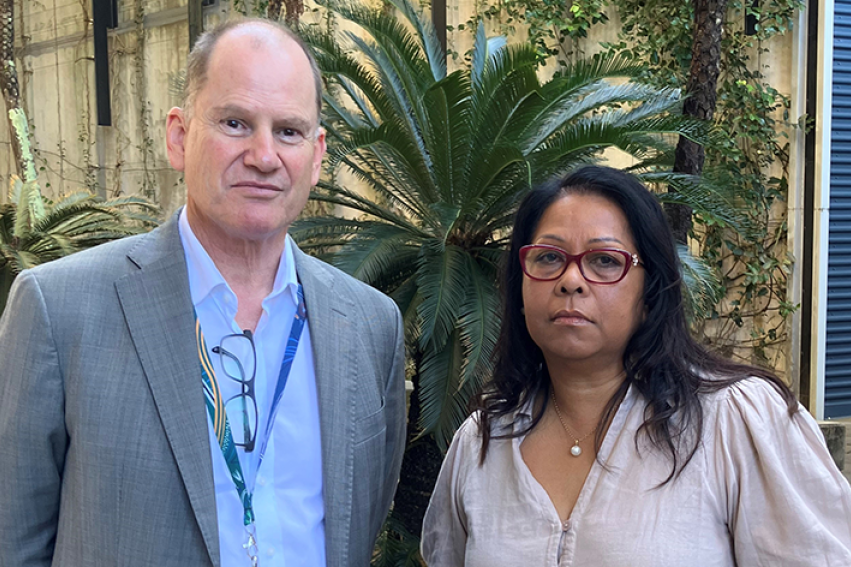Community
2 September, 2024
Infant is third meningococcal case in Cairns region
HEALTH authorities are urging people to be on the lookout for signs of meningococcal disease, following a probable third case of meningococcal disease in the Cairns area.

The new case, an infant from Cairns’ northern beaches, is in a serious but stable condition in Townsville University Hospital paediatric intensive care unit.
Two young people in Yarrabah Aboriginal community were confirmed with meningococcal disease in early August 2024. Both patients have now recovered.
The third probable case is currently being investigated by Tropical Public Health Services (Cairns).
Tropical Public Health Services acting director Dr Paul Dugdale said the team was
currently investigating links between the Yarrabah cases and the Cairns northern beaches case.
“As such, we have expanded the meningococcal outbreak warning for the Cairns area,” he said.
“We will be administering antibiotics to close contacts of the infant. We will also work with GPs to increase meningococcal B vaccination coverage.”
Dr Dugdale said meningococcal disease was caused by bacteria transmitted by close contact.
“At any given time, meningococcal bacteria are carried by about 10 per cent of the population silently at the back of the throat or in the nose,” he said.
“The bacteria can be spread via droplets from the nose or throat during coughing and sneezing or close contact such as kissing.
“Meningococcal disease is a relatively rare illness, however, the disease can cause serious illness marked by a rapid deterioration.”
The signs and symptoms of the illness include:
• rash
• vomiting,
• fever,
• headache,
• confusion,
• stiff neck and
• joint pain
In babies, the typical symptoms may be harder to detect, but they may include:
• a fever (temperature above 38°C)
• a high-pitched, moaning cry
• being irritable, agitated or unsettled
• refusing or not waking for feeds
• vomiting
• being difficult to wake, lethargic or floppy
• pale or blotchy skin
• a skin rash (small bright red spots or purple spots or unexplained bruises) that does not turn skin-coloured (blanch) when you press on them with a finger or the side of a clear drinking glass
“If concerned, people should seek immediate medical attention, as early treatment with antibiotics can be lifesaving,” Dr Dugdale said.
“Parents and carers should also make sure their children’s meningococcal vaccines are up to date,” he said.
“In Australia, a free meningococcal ACWY vaccine is provided for children at 12 months of age and in Year 10 of secondary school (or aged 15 to 19 years).
If children missed receiving the vaccine at school, it can be provided by a local GP.
There is also a meningococcal B vaccine which is free for all kids up to 2 years of age, also available through the school program, and for people with specified medical risk conditions that make them more vulnerable to invasive meningococcal disease.


